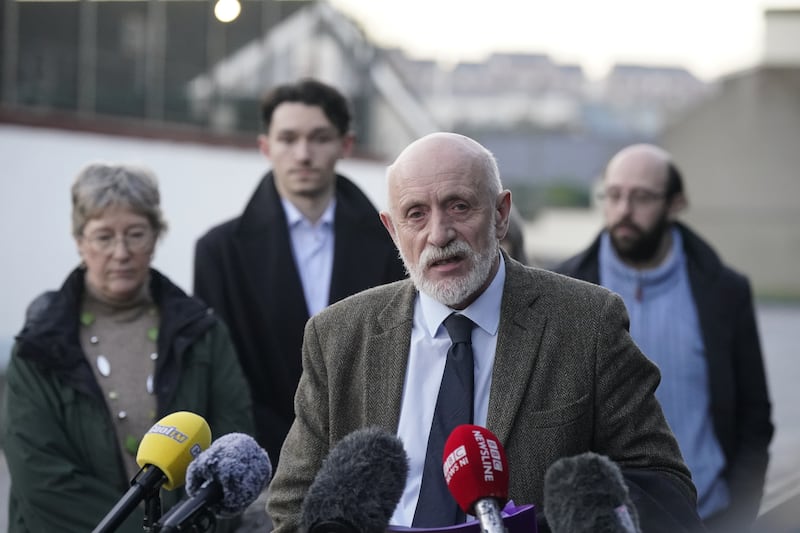The utter tragedy of the brutal killing of devoted husband and wife Michael and Marjorie Cawdery can only be compounded by a coroner’s finding that their deaths were “entirely preventable”.
Mr and Mrs Cawdery, who were both 83, were attacked in their Portadown home in May 2017 by Thomas Scott McEntee, a paranoid schizophrenic. During what was clearly a period of severe mental ill health, McEntee had interacted with police and health care workers several times in the days before he carried out the fatal stabbings.
Read more:
Family of Michael and Marjorie Cawdery killed by mentally ill patient welcome new NHS probe
Full disclosure needed after tragic Cawdery and Hughes cases
But, as coroner Maria Dougan found, a series of failings ultimately led to him absconding from Craigavon Area Hospital and breaking into the Cawderys’ nearby home.
Ms Dougan highlighted poor communication and a lack of informed and effective decision-making by police officers and staff in the Belfast and Southern health trusts “in their contact, care and treatment” of McEntee, who in June 2018 was given a life sentence for the killings after he pleaded guilty to manslaughter on the grounds of diminished responsibility.
In a key section of her findings, Ms Dougan said that while each of the omissions and missed opportunities may not individually be considered grave, “the combination had devastating consequences”.
She highlighted how police had failed to use powers available to them through mental health legislation which would have allowed them to take McEntee to ‘a place of safety’.

Worryingly, she said she was not satisfied that the PSNI and the health trusts have learned all the lessons from the distressing episode. This will understandably alarm the public. The police and trusts need to urgently allay those fears and demonstrate that they would act differently if faced with similar circumstances today.
The Cawderys’ son-in-law, Charles Little, spoke of “the utter chaos” that appears to have existed in both the health service and the police, including “their inability to appreciate how ill this man was”.
Many will empathise with his argument that “there is no justice when only the ill man is held accountable”, and that there should be a way for relevant organisations to be held to account.
Mr Little has asked the victims of crime commissioner to review legislation around corporate manslaughter, gross negligence manslaughter and misconduct in public office.
This deserves serious consideration to help ensure that the safety of those with mental ill health and the general public is firmly prioritised by organisations with a duty of care.








